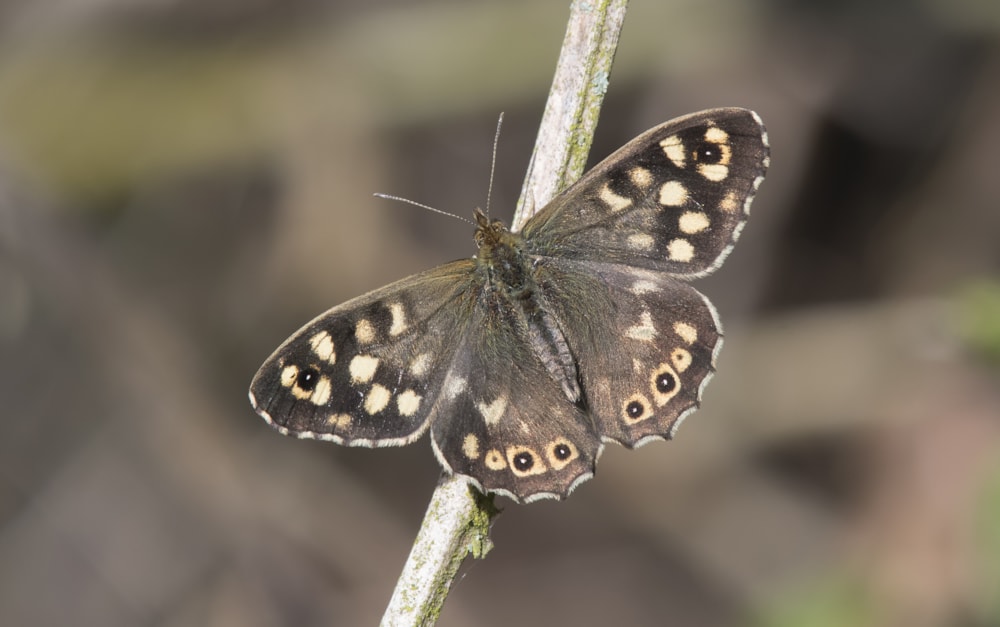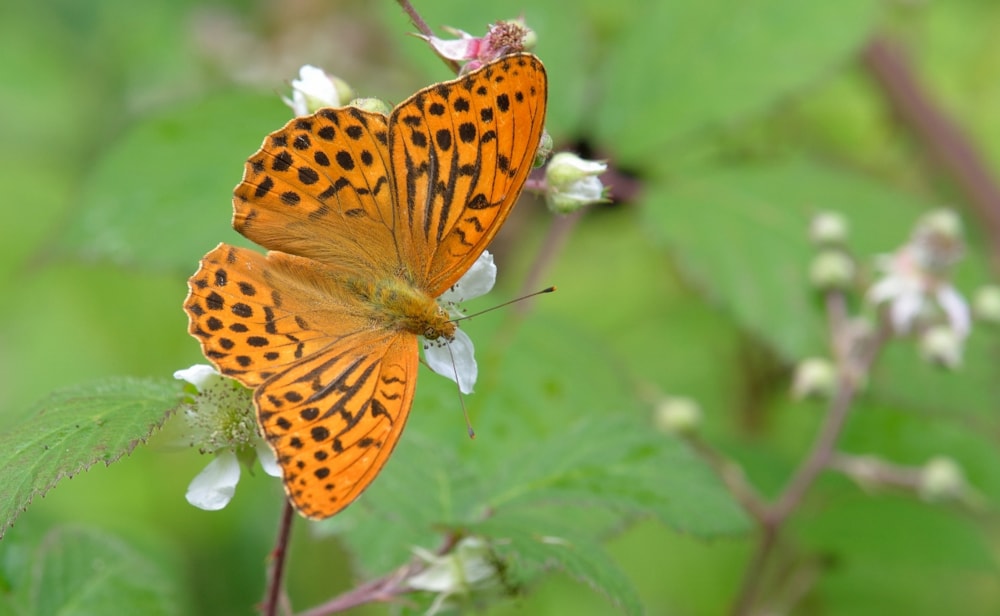UK butterflies hit hard by changeable weather
After a disastrous spring for weather, Butterfly Conservation (BC) has urged people to take part in this summer's Big Butterfly Count, which starts today [16 July].
BC's current records show that many species of butterfly have had a poor spring or a delay in their emergence following 2021's unseasonably cold and wet weather. Although April was the sunniest on record, it was also very cold with a record number of frosts. This was then followed by the wettest May for more than 50 years.
Speckled Wood was particularly low in numbers this spring, but other common species such as Small Tortoiseshell, Comma, Green-veined White, Large White and Red Admiral were also all down in abundance compared with their 10-year average. How this will impact this summer's butterflies is what the charity is hoping the British public can help establish by taking part in the Count.

Speckled Wood is one of several common UK butterflies to have had a very poor start to 2021 (Bob Eade).
The UK is experiencing an increasing number of extreme weather events, likely a result of climate change, and it's important we learn the effect these changes have on our native butterfly species in order to understand the likely long-term impacts on biodiversity.
The Big Butterfly Count is Butterfly Conservation's annual three-week citizen science event. The UK-wide survey is open to everyone, of any age, living in towns, cities or the countryside. Taking part requires spending 15 minutes in an outdoor space counting the butterflies (and some day-flying moths) seen.
There were more than 145,000 counts submitted to the Big Butterfly Count last year – more than ever before. What was worrying, though, was that 2020 also saw the lowest average number of butterflies logged since the event began 12 years ago. Butterfly Conservation scientists are keen to see if this is a trend that continues in 2021, hence the importance of the public taking part and helping to gather data.
Chris Packham, Vice President of Butterfly Conservation and wildlife broadcaster, said: "Biodiversity and climate crisis is an urgent issue and it can be overwhelming to think about what we can do as individuals to really make a difference. Because butterflies and moths make excellent indicators of the impacts of climate change and other human environmental factors, collecting data on their numbers is really important. So, something as simple as recording a butterfly spotted in your garden, at your local park or on your window box can play a part in vital research into a global problem. It's a really valuable contribution everyone can make."

Butterfly Conservation is asking members of the public to spend 15 minutes counting butterflies between 16 July and 8 August (Bob Eade).
Dr Zoë Randle, Senior Surveys Officer at Butterfly Conservation added: "The Big Butterfly Count, along with our other research work, is already showing us changes in the populations of our butterflies and moths. Climate change and other human-led impacts are causing some species to be found in new areas, while others are becoming harder to find in the UK at all. An example is the Jersey Tiger, a really striking moth that flies during the day as well as at night. These moths have been well-established along the south coast of England but are moving further north and are now found in ever-increasing numbers in London. As a result, Jersey Tiger appears on this year's Big Butterfly Count identification chart for the first time.
"We really need the public's help to understand what is happening to our butterfly and moth populations. It's a small but crucial thing everyone can do. This information will not only help us to protect these species, but also to inform what effect the changing climate is having on our biodiversity."
Taking part in the Big Butterfly Count is something anyone of any age or ability can do, in any outdoor space. It provides a real contribution to science and our understanding of butterfly and moth populations in the UK.
This year's Big Butterfly Count runs from 16 July-8 August. For more information and to take part simply visit www.bigbutterflycount.org or download the free Big Butterfly Count app for Android or iPhone.

